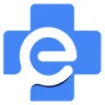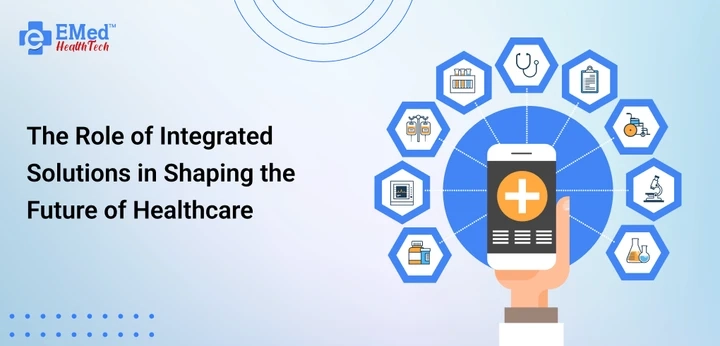Healthcare is rapidly evolving, driven by technological advancements that aim to improve efficiency, enhance patient care, and optimise operations. Integrated Healthcare Solutions is at the heart of this transformation—comprehensive systems that connect various healthcare processes, enabling seamless collaboration and data sharing among providers, patients, and stakeholders. This article delves into the significance of integrated solutions, their features, and their role in shaping healthcare's future.
What Are Integrated Healthcare Solutions?
Integrated healthcare solutions are systems that unify various components of healthcare delivery, such as patient records, billing, diagnostics, pharmacy management, and telemedicine, into a single, cohesive platform. These solutions aim to eliminate silos, reduce redundancies, and improve coordination across the healthcare ecosystem.
For instance, a patient’s electronic health records (EHR) can be integrated with lab results, medication history, and appointment schedules, ensuring healthcare providers have a holistic view of the patient’s medical history.
The Need for Integrated Solutions in Healthcare
1. Fragmented Systems and Data Silos
Traditional healthcare systems often operate in isolation, with separate systems for patient records, billing, diagnostics, and more. This fragmentation leads to inefficiencies, errors, and delays in care delivery.
2. Rising Patient Expectations
Patients today demand faster, more personalized care. Integrated solutions provide a seamless experience by enabling real-time communication, streamlined workflows, and easy access to health information.
3. Regulatory and Compliance Challenges
Healthcare organizations must navigate a complex regulatory landscape. Integrated solutions help ensure compliance by centralizing and standardizing data management practices.
4. Growing Focus on Preventive Care
Integrated systems facilitate data sharing and analytics, enabling providers to identify patterns, predict risks, and implement preventive measures.
Key Features of Integrated Healthcare Solutions
1. Centralized Patient Records
Integrated solutions consolidate all patient data into a single platform, giving providers a comprehensive view of medical histories, diagnoses, and treatments.
2. Interoperability
These systems enable seamless data exchange between different software and devices, ensuring consistent and accurate information across all touchpoints.
3. Automation of Administrative Tasks
Integrated systems streamline scheduling, billing, and claims processing, reducing administrative burdens and improving operational efficiency.
4. Data Analytics and Reporting
Advanced analytics tools help healthcare providers make data-driven decisions, identify trends, and measure performance metrics.
5. Telemedicine Integration
Integrated solutions often include telemedicine capabilities, allowing providers to offer virtual consultations and remote care.
6. Secure Communication Channels
Built-in communication tools ensure secure interactions between patients and providers, enhancing engagement and trust.
Benefits of Integrated Solutions in Healthcare
For Patients:
Seamless Experience: Patients benefit from unified systems where appointments, medical records, and prescriptions are easily accessible.
Better Communication: Integrated solutions facilitate real-time updates and patient-provider interactions.
Personalized Care: Providers can use consolidated data to offer tailored treatment plans.
For Providers:
Improved Efficiency: Streamlined workflows save time and reduce errors.
Holistic View of Patients: Access to comprehensive patient information aids in accurate diagnoses and effective treatment.
Data-Driven Insights: Analytics tools help identify patient needs, optimize resources, and predict health trends.
For Healthcare Organizations:
Cost Savings: Reduced redundancies and improved resource allocation lower operational costs.
Regulatory Compliance: Centralized systems simplify adherence to data privacy and security regulations.
Enhanced Collaboration: Integration fosters teamwork across departments and specialities.
Real-World Applications of Integrated Solutions
1. Hospital Management
Integrated hospital management systems streamline everything from patient admission to discharge, ensuring smooth coordination across departments.
2. Chronic Disease Management
By centralizing patient data, integrated solutions help providers monitor and manage chronic conditions like diabetes, hypertension, and heart disease more effectively.
3. Pharmacy Management
Integrated solutions connect pharmacies with prescribers and patients, simplifying prescription fulfilment and ensuring medication adherence.
4. Population Health Management
Advanced analytics enable providers to identify trends, predict outbreaks, and allocate resources to address public health challenges.
Challenges and Solutions in Implementing Integrated Systems
Challenge: High Initial Investment
Many healthcare organizations hesitate due to the upfront costs of implementing integrated systems.
Solution: Cloud-based platforms offer scalable, cost-effective solutions with lower initial investments.
Challenge: Resistance to Change
Healthcare staff may resist adopting new technology.
Solution: Comprehensive training programs and user-friendly designs can ease the transition.
Challenge: Data Security Concerns
The centralized nature of integrated systems can make them vulnerable to cyberattacks.
Solution: Adhering to stringent security protocols, such as HIPAA compliance, and implementing advanced encryption methods can mitigate risks.
The Role of Integrated Solutions in the Future of Healthcare
As healthcare continues to evolve, integrated solutions will play a pivotal role in:
Promoting Value-Based Care: Shifting the focus from quantity to quality by rewarding outcomes over procedures.
Expanding Telemedicine and Remote Monitoring: Enabling providers to deliver care beyond traditional clinical settings.
Empowering Patients: Giving individuals greater control over their health data and decisions.
Driving Innovation: Leveraging AI and machine learning to enhance diagnostics, treatment planning, and preventive care.
Conclusion
The future of healthcare lies in connectivity and collaboration. To explore how integrated solutions can transform your healthcare operations, visit emedhealthtech.com and start your journey toward a smarter, more efficient healthcare system today.


